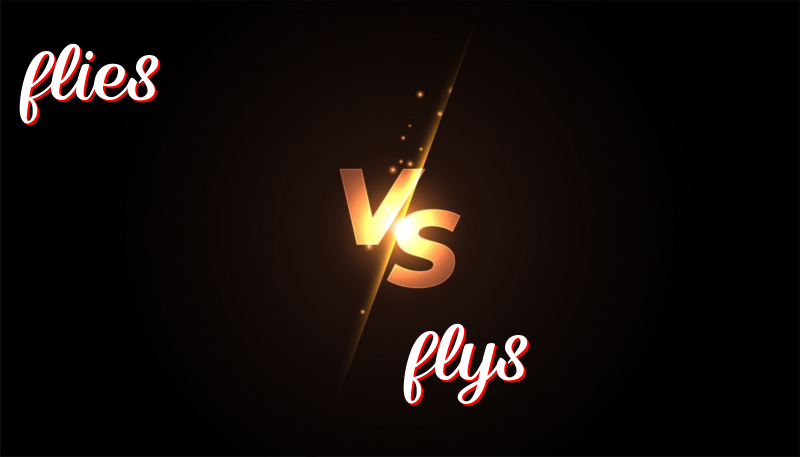Flies vs Flys: Understanding the Difference
Understanding “Flies” vs “Flys”
The words “flies” and “flys” might look similar, but they are used in different ways. Let’s learn more about them!
History of the Words
The word “fly” comes from the Old English word “flēogan,” which means to move through the air. The word “flies” is the plural form of “fly,” and can also be the third person singular form of the verb “to fly.” The word “flys” is not commonly used in modern English, but it is an old form that was sometimes used as a variant of “flies.” Today, “flys” is scarcely seen in everyday writing.
How to Use Them
Flies
- Used as a noun to mean more than one flying insect.
- Used as a verb when talking about one thing or person flying.
Flys
- Rarely used in modern English.
Examples of “Flies”
- The flies buzz around the fruit.
- An eagle flies high in the sky.
- The plane flies over the mountains.
- He flies his kite in the park.
- The butterfly flies from flower to flower.
Examples of “Flys”
- In old books, you might see “flys,” but it’s now outdated.
- This word is not used today as flies is the correct term.
- Historically, “flys” was sometimes an alternate, but not anymore.
- Students often mistakenly write “flys” instead of “flies.”
- Remember that “flys” is not a proper spelling today.
Trick to Remember the Difference
To remember the correct spelling, just think of flies as both the plural of the insect and the verb form with action like a plane or bird. If you’re talking about insects or moving through the air, use flies. Avoid flys as it is not used anymore.
Summary
In today’s English, always use flies to talk about multiple flying insects or when something or someone is flying. The form flys is outdated and not used in current writing. Keep it simple by sticking with flies for modern usage!

Leave a Reply
You must be logged in to post a comment.